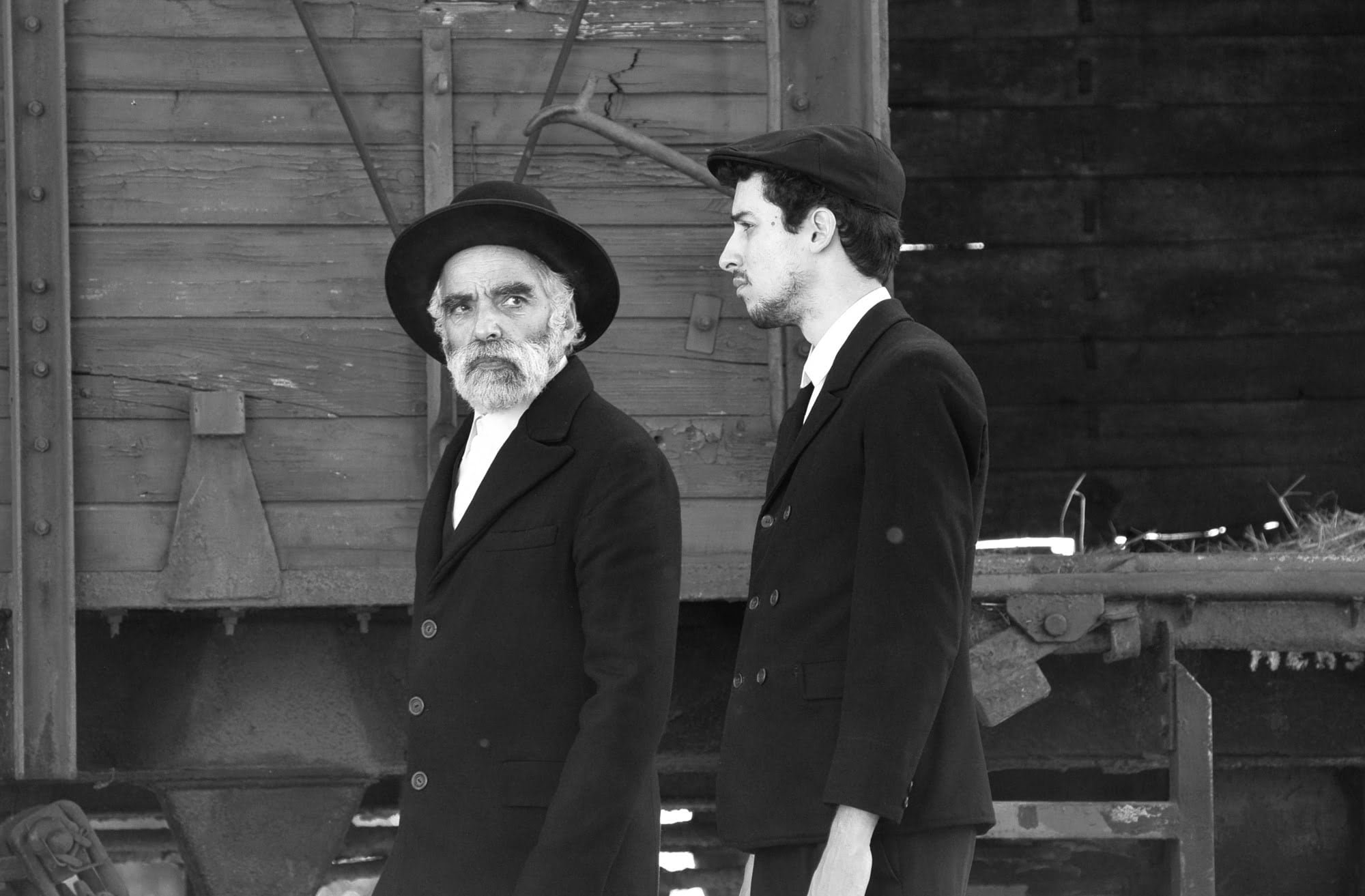Hungarian filmmaker Ferenc Török’s period drama 1945 is the rare sort of ensemble drama where long internalized grief, shame, regret, and selfishness destroys characters more than external forces will. Set during a formative period for the country – post-World War II fascism and prior to the rise of Communism – 1945 follows a group of misguided, paranoid, and easily manipulated townsfolk who don’t need a righteous revenge seeking force to make them come unglued. All they need to break and fracture is an idea or a threat. It’s a powerful, cleverly designed work about how apathy and ambition can create long lasting damages to those who employ such tactics in times of great struggle, hardship, and human rights abuses. It’s a revenge film where the work is more or less already done for anyone who might be seeking retribution for long dormant offenses.
István (Péter Rudolf) is a harried and stressed out town clerk left in charge of a rural hamlet shortly after German forces have left the country. He operates somewhat like a cross between and old west sheriff and a mob boss. Not only is István trying to keep the peace and appear likable before impending elections might see hovering Russian Communists rising to power, but when we join him, he’s frantically making final arrangements for his son’s wedding. The clerk’s plans are further thrown into disarray when a train station manager rushes to deliver news that an Orthodox Jewish father and son have pulled into town. The travellers don’t say much other than that they’re making a delivery of perfumes and cosmetics, and they’re slowly making their way into town on foot. The town hasn’t seen any Jews since the war, and alarm bells have been raised all over the place by their impending arrival. Many believe that the travellers aren’t salesmen making a delivery, but the distant relatives of a prominent family that was sold out by the locals to the Nazis who are coming for their inheritance. With the absent family’s assets stolen and divided up by István’s family and several other well connected locals, everyone in town starts worrying that they’ll actually have to face consequences for their covetous, inhumane actions.
1945 is played perfectly straight by Török and the cast, but blackly comedic notions abound. 1945 plays a bit like Our Town if every character was guilty of frequently unforgivable crimes or purposeful ignorance. Writer-director Török (adapting a short story by Ga?bor T. Sza?nto?) has cleverly crafted a drama about people who insist they were just doing what felt right during a time of great suffering and need. The residents of this Hungarian town weren’t following orders, so they can’t rely on the same defense used by the Nazis to excuse abhorrent behaviours. They only have themselves to blame. The guilt and shame that permeates every black and white frame of 1945 is a result of flawed, greedy human beings who did something because everyone else was doing it. Not all of them seem sorry. They just seem sorry that they got caught.

The appearance of Jews (who have hardly any dialogue, making their trip silently and solemnly) causes a ripple effect. While István stuck his fingers in a lot of metaphorical pies, his entire family will suffer through the process. His son’s engagement will rapidly crumble, not just because of the situation at hand, but because the lad’s fiancée has been secretly carrying on with a swarthy, sensitive local Communist. István’s closest friend and confidant will fly off the handle into a drunken, babbling, delusional stupor. The pharmacy his son operates – which was also owned by the Jewish family – is endangered. About the only person whose mood is raised by such developments is István’s long suffering wife, who has spent most of her days locked away in the bedroom self-medicating, coming out seemingly only to get her own form of penance and watch the chaos unfold.
There’s a lot going on in 1945, and it’s remarkable that Török is able to cram everything into just barely ninety minutes of movie. The pace of 1945 is positively blistering, but that’s what makes the drama and comedy of it all so immediate and powerful. The characters don’t have time to think about what they’re going to do next, and the weight of consequence weighs down heavily. 1945 spends almost all of its time with its ostensible villains and little time with any heroes, which feels almost claustrophobic at times. It’s a film built entirely around watching walls closing in on people who have to own up to the awful things they’ve done. It’s bleak and depressing, but also strangely satisfying. It’s the kind of story that could have only taken place in a specific country like Hungary at an even more specific and lamentable time in human history. It’s a perspective of World War II narratives that’s never been seen before, and while the film never excuses the actions of the characters, it remains an important bit of historical fiction that reminds viewers that the scars of Nazi occupied Europe ran deeper than the Holocaust and oppression.
1945 opens in Toronto (Carlton Cinemas, Mt. Pleasant, Cineplex Empress Walk) and Vancouver (International Village) on Friday, August 24, 2018. It expands to Montreal (Quartier Cavendish) and Calgary (Globe) on August 31, to Kitchener (Princess) on September 7, Ottawa (ByTowne) on September 21, and Regina (RPL) on September 28.
Check out the trailer for 1945:
Join our list
Subscribe to our mailing list and get weekly updates on our latest contests, interviews, and reviews.

